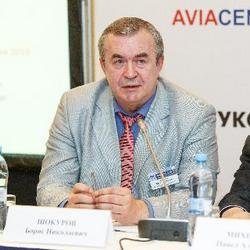Russian airlines complain about soaring fuel prices at airports
If they don’t stop, ticket prices will rise at least by 15%
The Association of Air Transport Operators are raising the alarm: jet fuel prices can skyrocket from 18% to 62% by the end of the summer season. By airlines’ estimates, this can lead to at least a 15% rise in price for tickets. The Russian Ministry of Transport is expected to hold an extended meeting with the management of airports and fuel operators this week. Meanwhile, Tatneftaviaservice, which provides fuel at Kazan international airport, together with two alternative operators aren’t going to raise the prices, said the head of the company.
More expensive return ticket
The last month of the already short 2020 tourist season can be defeating for holidaymakers. After the quarantine was lifted, many went on holiday to Russian resorts, however, their return might turn out much costlier than the flight to the sea or mountains. The Russian Association of Air Transport Operators representing the interests of 23 airlines is concerned about the upcoming rise in jet fuel prices at the country’s airports. Last Wednesday, head of the association Vladimir Tosun sent a letter to Russian Minister of Transport Yevgeny Dietrich asking him to study the feasibility of the prices announced from August to September 2020. In the letter, the Association of Air Transport Operators warns that the price for jet fuel can jump from 18% to 62% compared to July depending on a plane’s departure airport.
“The cost of jet fuel compared to previous tenders’ results has changed the following way: Koltsovo +62,1%, Domodedovo +33,4%, Zhukovsky (Editor’s Note: Moscow) +36%, Saint Petersburg (Pulkovo) +18%, Vladivostok +20,4%, Blagoveshchensk +21,1%, Irkutsk +28,1%, Krasnodar +48,4%, Krasnoyarsk +48,6%,” the expected growth numbers are provided.
Welcome to Kazan
The surges in the curve of price growth in the regions are based on results of tenders for fuel supply, which airlines held on the eve of the month of flights.

Moreover, Kazan isn’t on the association’s list. According to him, Russian airlines didn’t complain about the price policy in Tatarstan. “We aren’t withholding information, it isn’t conspiracy, we just don’t know what prices Tatarstan is going to fix,” Boris Shokurov explained. It seems that some airlines prefer signing direct contracts with fuel suppliers without tenders, he supposed.
Possible 15% rise in ticket prices
The expected rise in prices for jet fuel in the regions can cross out the measures taken to stabilise passenger flights, thinks the Association of Air Transport Operators. “Such a sudden rise in jet fuel price almost eliminates all measures taken by the Government of the Russian Federation and airlines themselves to survive the current crisis in the aviation sector and create conditions for a gradual recovery,” reads the letter to the Russian transport minister. “An upsurge in the price for jet fuel will inevitably lead to a general growth of air transport services for end consumers”.
Airlines evaluate that in case fuel goes up in price by 60%, prices for tickets will increase at least by 15%. “A ticket price is already added up 10% by the day of the flight, and if we add the fuel growth to this, passengers can refuse to fly,” representatives of airlines say. “On the other hand, those who are already in resorts anyway will anyway have to buy tickets for any price. But this should be avoided.”
With report to Russian Ministry of Transport
The Association of Air Transport Operators is asking Russia’s Ministry of Energy and Federal Anti-Monopoly Service to examine the feasibility of the sudden rise in the cost of jet fuel at Russian airports.
“If there is some foundation for the rise, might they show it so that there is no complaint about the airlines,” Boris Shokurov explains the goal of the association’s request.
At the same time, he admits that this year there was very volatility of prices in the fuel market, due to this it is hard to forecast future prices. “But airlines have also carried huge losses of 500bn rubles,” he stresses. “We stood idle for three months, while fleet maintenance costs weren’t compensated.”
The association assumes that the competition among fuel suppliers at an airport influences the prices. “Few regions have alternative operators,” says Boris Shokurov. “And if it is a monopolist it dictates prices to the airline.” The expert thinks that the FAS should pay attention to this circumstance when examining the situation at every airport. The Russian Ministry of Transport is expected to hold an extended meeting with the management of airports and fuel operators this week
Kazan reduces prices by 4,3%
“When we land at Kazan international airport, our airline is serviced by Tatneftaviaservice,” said Director General of UVT Aero airline from Tatarstan Pyotr Trubayev.
According to him, the price for jet fuel turned out to be 4% lower here by early August than in July. “Among the regions where we operate flights, the biggest growth was in Kaliningrad — by 17%. The average rise at Russia’s airports is about 15%,” he said.
In Tatarstan, UVT Aero worked with direct agreements with Tatneftaviaservice, he clarified.

He says that they can come to an agreement not with all airports: “We have to accept the conditions if there is only one supplier”. The Kazan airport has two operators. It is Tatneftaviaservice, which stopped being controlled by Tatneft, and Aviation Logistic Services PLC. “Kazan International Airports JSC doesn’t participate in fuel pricing,” the airport’s press service said.
According to the Federal Agency for Air Transport, jet fuel prices in Kazan, indeed, reduced by 4,3%, to 34,500 rubles. The price is lower only at Samara’s Kurumoch airport — from 30,000 rubles. However, the price tag at Begishevo airport in Nizhnekamsk is over the top — up to 43,000.
Head of Tatneftaviaservice Mikhail Ruzayev assured that they didn’t plan to raise the prices in August:
“We purchase the fuel like the other players on exchange, for wholesale prices. If vertically integrated companies raise them, we won’t be able to operate at a loss,” Ruzayev explained. According to him, the company services about 70 airlines it has direct contracts with, while the prices themselves are registered by the Federal Agency for Air Transport. He thinks that there is a broad spread of the price rise dynamics because airports used to stock up on fuel at the beginning of the year when they turned out to be the highest and now they want to win them back, since the service’s attempts last year were not crowned with success.